

Transit Visas for the United States? Why? UNWTO Secretary General agrees…
After devastating natural hurricane disasters, Caribbean countries are struggling to bring the islands together. MOU signed at the just-concluded UNWTO Sustainable Tourism conference in Montego Bay opened more doors to establish enhanced and direct air service to and between the island countries.
Besides the lack of air services to fly from one island to another, also air-connections to the island often involves a change of aircrafts in the United States. US airports including Miami, Ft.Lauderdale, Houston, Dallas, Atlanta, Newark, JFK are some of the connecting points for tourists to reach a Caribbean State like Jamaica.
This is profitable for U.S. airlines including American, Delta, United, SouthWest, and others, but a nightmare for some travelers arriving from a country that requires a VISA for the U.S., but no visa for the destination country, for example, Jamaica.
In almost every part of the world, this is no big deal. International airline passengers transiting through airports and not entering the transit airport country it only involves clearing a security check. Passngers walk from gate to gate and enjoy duty-free shopping in between. Dubai, Abu Dhabi, Doha, Tokyo, Beijing, Frankfurt, London, Singapore, Bangkok, Istanbul, Munich, Amsterdam, Paris, Rome, Cairo – almost every airport on the globe has transit passengers and can handle them without requiring them to clear immigration or customs at the transit airport point.
The United States of America is different. If a passenger passes through a US airport it means clearing immigration, getting your suitcase and checking in again for your connecting flight. Some say this is an abuse of passenger and in violation of international airline agreements.
Taleb Rifai, Secretary-General of the United Nations World Tourism Organization agreed. He told eTN at the just concluded UNWTO Sustainable Tourism Conference in Montego Bay, Jamaica, that it was not a pleasant experience trying to connect travel through a US airport when traveling to different Caribbean state. He said: “I have a U.S. visa, but going through immigration, facing long lines, clearing U.S. customs and checking back in and go through security again, makes this travel experience unpleasant.”
A government delegation to the UNWTO conference from Greece arrived a day late, because they had to get an “emergency” transit- visa for the U.S. before they were allowed to go on a direct itinerary from Athens to Montego Bay through New York.
Jamaica’s tourism minister Ed Bartlett said: “We are in an advance discussion with the U.S. State Department and other Caribbean nations in regards to the transit issue and a single visa for the Caribbean. There are electronic options, including visa payment options, a country could implement.”
In the meantime, the majority of all flights to the Caribbean touch a U.S. port and it means delays, long lines and a complicated process unnecessary in today’s electronic world. Caribbean states are also looking for more direct flights from major gateways in Europe to overcome this hurdle.
Minister Bartlett responded that this question speaks clearly to the strategy of tourism, explaining that the MOU speaks to the harmonization of certain types of policies, particularly in relation to clearance regulations for the United States and visa facilitation, and what needs to be done in terms of making payments online. He said, “More important, is to create a single visa card that will allow an international visitor who comes into let’s say Jamaica to then have domestic arrangements thereafter. That would be enormous in terms of the airlines … and cost as well.” He said they are pretty advanced in discussions with US representatives and other destinations as well, such as the Bahamas, Aruba, and even Colombia, for example.” He said they are looking forward to the day when a visitor can fly from between islands with ease. He further explained that they are also discussing with China how to structure travel with Jamaica.
Taleb concurred with Juergen that it was not a pleasant experience trying to connect travel within the Caribbean.

Jamaica’s Gastronomical Center will open a new tasty trend to tourism
UNWTO Conference Delegates were wined and dined last night at Chukka Caribbean Adventures in Jamaica and the host had a purpose doing it. The result after a fantastic eleven-course gourmet experience was the announcement by Jamaica’s minister of tourism Ed Bartlett to establish a gastronomical center in Jamaica. According to eTN Publisher “Excellent was an understatement.”
A gourmet experience is many times a part of a tourism experience. After this first center in the Caribbean will be established in Jamaica, tourists will be able to understand how local products make its way to the market, and how to cook a delicious Jamaican’s meal. Visitors will be able to take their church groups, their wedding groups or come alone and learn about Jamaica’s cuisine. Visitors could learn how to cook, or chefs will be ready to prepare a mouthwatering experience. Gourmet will be included in promoting Jamaica as a travel and tourism destination.
Here are some photos showing the food ane wine delegates enjoyed Thursday night.













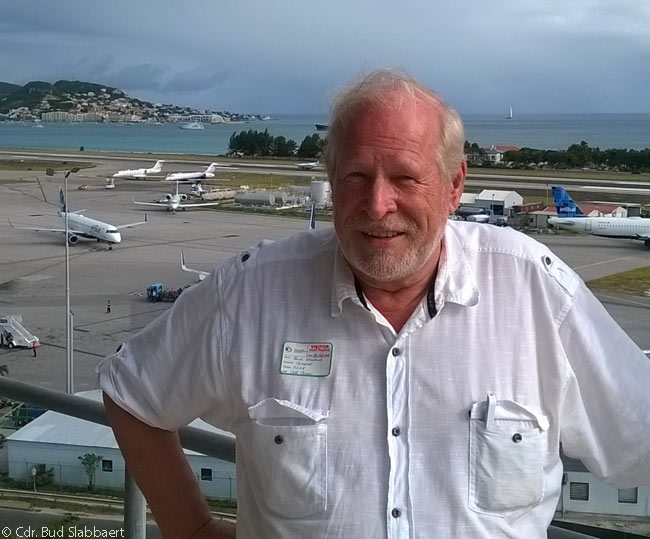
One Caribbean Tourism: A dream or just an illusion?
Airlift is a major Caribbean problem that deserves top priority because it is vital for tourism and trade, subsequently for the economic well-being of all population members of the Caribbean communities. The problem was discussed at last week’s UNWTO Sustainable Tourism Conference in Montego Bay, Jamaica.
The problem has been acknowledged for many years. No one has come up with a true common solution.
How to solve the airlift problem? It is quite complicated. Already because of the geography and the many jurisdictions. Try to define the Caribbean. It could be any area between Bermuda and the Guyanas and include the coastal areas of Central America. Yet, the countries need each other’s air transport connections. It is not a kind of project where one should expect to have a complete universal solution at once for all. It will most likely come in steps and building blocks. That is acceptable, as long as the end result is a ‘Caribbean House’ that all feel comfortable to live in.
Part of the problem is the word ‘unifying’. So let’s post the question to a person who has an objective perspective on airlift matters and panoramic view of Caribbean issues, the Minister of Transportation of the island St.Tosia, the fictitious Honourable Duncan Vanderbeest: “Unifying the Caribbean? Can it be done? Yes! Am I sure? No! Where lies the challenge? The first challenge is that one would have to unite while leaving all the differences intact! The second challenge is that there are more jokers around than a Caribbean comedy festival could stand. Last but not least, and don’t tell my colleagues that I have said this, or else they may have evil come upon me in a next summit, but, I couldn’t tell one ‘Honourable’ from another; they all sound alike.” End quote. Wow! Thank you, mister Minister, as it is an exception to hear the powerful talk as candidly as the powerless.
The solution may be a Caribbean Airlift Council. An institution that is independent of governments. It cooperates with governments and advises them when asked, yet, it is credible and highly respected to also urgently suggest and be accepted even when not asked. Where does that leave the representation of the public sector, the various business organizations or interest groups? The expression ‘Interest groups’ says a lot. They usually pursue a particular interest that is on their mind and they have organized themselves for that purpose. There are three interest segments: aviation, tourism, and investment. The Caribbean Airlift Council will cooperate with all of them and communicate but remain impartial and independent. If the Council is just a mediator in such a complicated environment, why fiddle around with a healing middleman and not immediately call a priest? Not so pessimistic! This is about new life and when differing circumstances meet, creativity is encouraged.
The primary task of the Council is finding realistic solutions for any airlift issue that has not been dealt with (past, current, and future) with a satisfactory result. This global definition in itself creates an immense field of issues. It serves all airlift stakeholders thus not just the aviation industry, but rather also the travel and tourism interests, and to a lesser degree the investment segment. The Council activities could include, consulting and advise, study, meditation, certification (e.g. Caribbean Friendly Sky concept). Several other activities may be included but cannot be listed here.
The Council shall not copy the activities which agencies or organizations are doing or supposed to do. If nothing else, it will simply outdo these actors with faster and better solutions. There are many issues that need a solution for once and for all, and rather sooner than later. The reason why these needs exist so widely is that they have never been dealt with on such a broad base. Maybe attempted on a smaller scale or a narrower base, but they have not resulted in accomplishments that serve all governments, communities or interest groups in the region. Sometimes it may have been the lack of foresight or appropriate competence; other times it was the political meddling.
The Council should NOT get any authority. If it was given authority, it may already encounter resistance by a foreseeable number of egos. Yet, the fact that the Council is an authority on the airlift subject itself, may be its most powerful instrument to have its influence and impact. Anyone who ignores the work or advises of the Council might be considered foolish. The entity should be strong-minded, undistractible, and remain focused at all times on carrying out the mission leading to the objective of solving Caribbean airlift problems. The unit should be totally integer, impartial, unbiased, neutral, and have no hidden agendas. Therefore, the Council shall be respected by all.
Creating the right organizational structure and its procedures is a challenge for itself. The members and affiliates of the Council should be competent movers and not well-worded followers. Titles are meaningless; it is not about who a person is, but rather what the person can do. Efficiency must rule; wasting time or energy is a no-no; mediocracy is considered failure.
In their idle time, some people dream. ONE CARIBBEAN may be such a dream or just an illusion. Who really wants ONE CARIBBEAN ANYTHING anyway, let alone a Caribbean Airlift Council? Defining and determining why to unify, may already be a tougher issue to find a consensus on, than the unification process itself. Who will make it happen, a messiah or a navigator? Looking at the conceivable tasks ahead, one would almost believe that this is a great script for either a Hollywood box office hit or TV soap opera scenario. Maybe this all remains food for thought; maybe it could be an appetizer.
The Author Cdr Bud Slabbaert is the initiator at CARIBBEAN AVIATION MEETUP conference
Bud is a Specialist in Strategic Communication. He is a leader of thought and his panoramic view on issues give any document by his hand more meaning and credit. Because of his maturity in communications and his interest in behavioral psychology, he is the ideal person to assist top level management in creating a communication campaign or to manage communication in crisis situations. Some of his contentions are “Nothing flies without an airport” and “Every passenger arriving on a business jet is a potential investor in the region”.

Hello Kitty appointed as Special Ambassador of the International Year of Sustainable Tourism Development 2017
United Nations designated the year 2017 “International Year of Sustainable Tourism Development” and World Tourism Organization (UNWTO) (Headquarters in Madrid; Secretary General Dr. Taleb Rifai) plays a leading role to promote it. UNWTO and Sanrio signed an agreement that appoints Hello Kitty as Special Ambassador of the International Year.
Sanrio’s best-known character, Hello Kitty will promote the Year’s campaign “Travel. Enjoy. Respect”.
“Travelling opens our minds and our hearts, and lets us see how we are equal.” said Hello Kitty in a video inviting people to “Travel. Enjoy. Respect.” recorded especially for the IY2017.
Hello Kitty will be supporting UNWTO with its advocacy efforts in communicating the messages of the IY2017 to the broadest extent possible, as well as highlighting the role of tourism in achieving the Sustainable Development Goals (SDGs) with a global audience.
http://https://youtu.be/VJ53rSS1ghs
The video already shown at the Nartia airport, Japan, will also be published on the website and social media channels of the International Year.
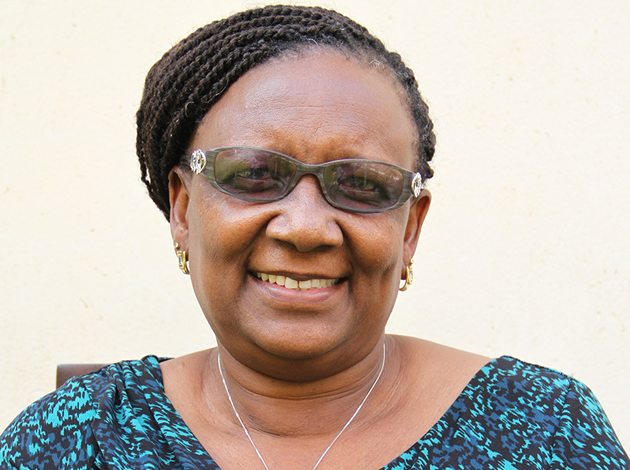
Cde Pricah Mupfumira new Tourism Minister in Zimbabwe
The new minister of Tourism and Hospitality for Zimbabwe was appointed today by the president. She is Hon Miss Cde Pricah Mupfumira. She was recently removed by the former president Mugabe as the Public Service Minister.
Dr. Jorum Gumbu was appointed as minister of transport. Joram Macdonald Gumbo was a member of the Pan-African Parliament from Zimbabwe.[1] He is a member of the Zimbabwe House of Assembly for Mberengwa West in the Midlands province, and belongs to the Zanu-PF party.
That leaves Dr. Walter Mzembi with no official appointment in the new Zimbabwe government. Mzembi was one of the longest servicing ministers of tourism in Zimbabwe and is internationally known and respected. For a short while he had the post of the Foreign Minister in the last days of the Mugabe government.

Montego Bay Declaration on ‘Jobs and Inclusive Growth: Partnerships for Sustainable Tourism’ on the occasion of the International Year of Sustainable Tourism for Development 2017
We, the representatives of UNWTO Member States and Affiliate Members, tourism administrations, international and regional organizations, local communities, private sector and academia, gathered in Montego Bay, Jamaica on 27-29 November 2017 for the World Tourism Organization (UNWTO), Government of Jamaica, World Bank Group (WBG) and Inter-American Development Bank (IDB) Conference on ‘Jobs and Inclusive Growth: Partnerships for Sustainable Tourism’, an official event of the International Year of Sustainable Tourism for Development 2017 organized in collaboration with the Caribbean Tourism Organisation (CTO), the Caribbean Hotel Association (CHTA), Chemonics International, the George Washington University and the World Travel & Tourism Council (WTTC);
Recalling the United Nations (UN) General Assembly Resolution 66/288 of 27 July 2012 that endorses the outcome document of the UN Conference on Sustainable Development, The Future We Want which emphasizes that “well-designed and managed tourism can make a significant contribution to the three dimensions of sustainable development, has close linkages to other sectors, and can create decent jobs and generate trade opportunities”;
Recalling the UN Resolution 69/233 of 19 December 2014 on the “promotion of sustainable tourism, including ecotourism, for poverty eradication and environment protection”, emphasizing the need to optimize the economic, social, cultural and environmental benefits stemming from sustainable tourism, particularly in developing countries;
Recalling the UN General Assembly Resolution 69/313 of 27 July 2015 that endorses the outcome document of the Third International Conference on Financing for Development, Addis Ababa Action Agenda, which underlines the need to “[…] develop and implement innovative tools to mainstream sustainable development, as well as to monitor sustainable development impacts for different economic activities, including for sustainable tourism”;
Recalling the UN General Assembly Resolution 70/1 of 25 September 2015 on Transforming Our World: the 2030 Agenda for Sustainable Development, which adopts the 17 Sustainable Development Goals (SDGs) which features tourism in Goals 8, 12 and 14 on inclusive and sustainable economic growth (8), sustainable consumption and production (12), and the sustainable use of oceans and marine resources (14);
Recalling the UN General Assembly Resolution 70/193 of 22 December 2015, which designates 2017 as the International Year of Sustainable Tourism for Development aiming at raising awareness on the contribution of sustainable tourism to development among decision-makers and the public, and encourages the UN system and all other actors to support sustainable tourism at all levels as an efficient instrument to contribute to sustainable development, while mobilizing all stakeholders to work together in making tourism a catalyst for positive change, especially addressing global challenges such as poverty eradication, environmental protection, and economic empowerment;
Recalling the principles of the UNWTO Global Code of Ethics for Tourism approved by the UNWTO General Assembly in 1999 and endorsed by the UN General Assembly in 2001, particularly those related to community empowerment, child protection, gender equality and universal accessibility;
Considering the 10-Year Framework of Programmes on Sustainable Consumption and Production Patterns (10YFP), notably the 10-YFP Sustainable Tourism Programme, a collaborative platform to bring together and scale up initiatives and partnerships to accelerate the shift to sustainable consumption and production, that has as its main goal decoupling tourism growth from the increased use of natural resources;
Considering that tourism is one of the fastest growing and most resilient socio-economic sectors, accounting currently for an estimated 10% of world GDP, 1 in 10 jobs and 7% of global trade of goods and services and 30% of trade in services;
Considering that tourism has multiple links to other economic sectors and can generate development opportunities along the entire value chain, particularly in developing countries;
Considering that tourism has the potential to contribute, directly and indirectly, to all the 17 SDGs and is featured in three of the SDGs, namely Goal 8, 12 and 14;
Considering that tourism is based on human interaction between visitors and host communities, creating a link that can promote intercultural understanding and tolerance, encourage mutual respect among people and thus contribute to a culture of peace in a framework of safety and security;
Understanding the urgent need to mobilize and unlock a substantial increase in financing tourism development, especially in developing countries, through development cooperation such as Official Development Assistance (ODA), Aid for Trade (AfT) and South-South Cooperation, as well as private sector resources and innovative financing mechanisms;
Taking into account that SDG 17 calls for ‘Partnerships for the Goals’ between governments, the private sector and civil society, built upon principles and values, a shared vision, and shared goals that place people and planet at the centre;
Considering the unique set of challenges and particular vulnerabilities of Island States including higher relative losses due to natural disasters, greater susceptibility to terms of trade shocks and more limited borrowing capability to invest but also their capacity to change the structure of their economies faster which helps them remain competitive despite shocks.
Building on the legacy of the International Year of Sustainable Tourism for Development 2017 and with the objective of setting a common action plan towards 2030, declare the following:
1. Cooperation and partnerships among all major stakeholders—governments at the national, sub-national and local level, international organizations, the private sector, academia and local communities— are vital for achieving the SDGs through tourism and require adequate governance and partnership mechanisms at all levels;
2. UNWTO Member States, Affiliate Members and other international organizations and private sector partners shall sustain the momentum created by the International Year of Sustainable Tourism for Development 2017 by creating a working group coordinated by UNWTO on the legacy of the 2017 vision. The legacy shall focus on a plan to be presented to international donors for inclusion in their future development assistance to developing and least developed countries, and to corporations for co-investment.
3. National governments, local authorities, private sector, financing institutions and relevant stakeholders shall develop an integrated and holistic approach to tourism development in order to leverage the sector’s positive impact and multiplying effect on people, planet and prosperity, thus capitalizing on its value as a key contributor to sustainable development;
4. National governments, local authorities, private sector, financing institutions and relevant stakeholders shall promote innovative tourism development models which fully engage, integrate and empower communities, create decent jobs and eliminate any barriers between communities and tourism developers;
5. Governments, local authorities, private sector, the academia and the international community shall advance the collection and analysis of tourism data to measure tourism’s full impact at national and local levels in line with the UNWTO Measuring Sustainable Tourism Initiative (MST) and the work of the UNWTO International Network of Sustainable Tourism Observatories (INSTO).
6. National governments, local authorities and other relevant stakeholders shall create an enabling environment for the private sector and provide incentives for businesses to act according to the principles of the UNWTO Global Code of Ethics for Tourism and the 17 SDGs;
7. The donor community shall recognize the wide-ranging impacts of tourism on all dimensions of sustainable development and scale up its support to sustainable tourism at bilateral and multilateral level by increasing efforts and coordination in mobilizing resources for tourism development through existing global financing mechanisms as well as new financing facilities related to the SDGs, including the UNWTO Tourism for Development Facility;
8. Governments, the UN system, international organizations, global and regional financial institutions and the private sector shall prioritize inclusive and green growth in tourism and foster investment in infrastructure and technology that helps to improve resource efficiency, mitigate climate change and decouple economic growth from resource use and environmental degradation;
9. Governments, the UN system, global and regional financial institutions and the private sector shall cooperate to promote safe, secure and seamless travel and build resilience for tourism by advancing crisis preparedness and management capabilities as well as the full integration of tourism in emergency structures;
10. Governments, the UN system, global and regional financial institutions, academia and the private sector shall support programmes that promote education, capacity building and skills development, particularly related to innovation and technology that create decent jobs and entrepreneurship opportunities, namely for youth, women and least favoured groups;
11. Academia, in partnership with governments, international organizations and private sector shall advance research on Tourism and the SDGs that provides relevant evidence and recommendations on the best policies and business strategies to realize the SDGs through tourism, including adequate necessary financing;
12. All stakeholders shall place the SDGs at the heart of their tourism policies, business strategies, initiatives, projects and research;
13. Governments, private sector, donors and the international and regional organizations shall support the development of a blue economy considering the specificities and vulnerabilities of Islands States in terms of natural resources, impact of climate change and extreme weather events as well as the high reliance of tourism on the ocean for marine activities, transportation, coastal protection and resilience.
14. Caribbean governments and private sector shall work together to advance regional integration through multi-destination tourism by fostering and harmonizing legislation on air connectivity, visa facilitation, product development, promotion and human capital;
15. Governments, private sector, donors and the international and regional organizations shall support the establishment of a Global Tourism Resilience Centre in the Caribbean, including a Sustainable Tourism Observatory, to assist destinations’ preparedness, management and recovery of crises which impact tourism and threaten economies and livelihoods.
We extend our heartfelt condolences to the families and friends of the victims of the devastating hurricanes that affected the Caribbean in recent months and commit to work together towards supporting the recovery of the affected destinations and their people, while building resilience for the Caribbean tourism sector, a pillar of the region’s livelihoods.
We express our sincere gratitude to our host, the Government of Jamaica, for its vision and leadership in convening this Conference and for its warm hospitality.
Montego Bay, Jamaica, 29 November 2017


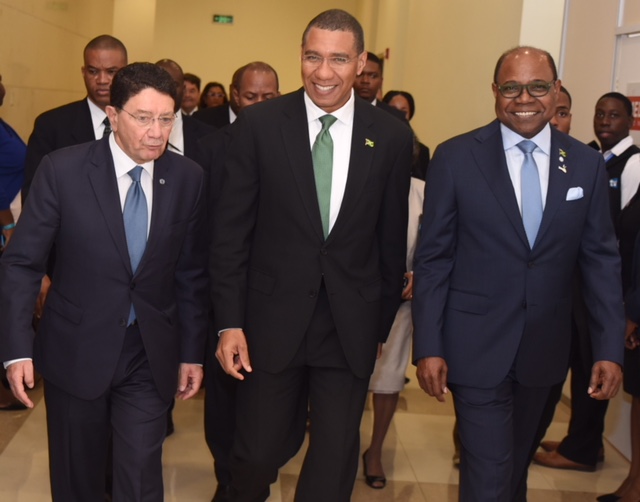
Prime Mimister Holness Commits to Local Tourism Development
MONTEGO BAY, Jamaica; Wednesday, November 29, 2017: Prime Minister Andrew Holness has given an unqualified commitment to the development of tourism in Jamaica.
Underscoring the importance of tourism to Jamaica and the wider Caribbean, Prime Minister Holness said, “We must pivot our tourism growth strategies in line with the key areas that the United Nations International Year for Sustainable Tourism promotes.”
He was delivering the keynote address at yesterday’s opening session of the UNWTO, Government of Jamaica, World Bank Group and Inter-American Development Bank Global Conference on Jobs and Inclusive Growth: Partnerships for Sustainable Tourism, at the Montego Bay Convention Center.
Among the key areas highlighted by the Prime Minister were: Inclusive and sustainable growth, social inclusiveness, employment and poverty reduction, resource efficiency, environmental protection and climate change, cultural values, diversity and heritage, mutual understanding, peace and security.
Prime Minister Holness suggested to the over 1400 delegates who had registered by day two of the three-day conference that tourism-dependent states should give critical consideration to how the industry’s product must adapt and evolve to reflect the new realities of today. Those considerations should include: climate change; evolving tourist preferences, in particular, how to treat with the new millennials; terrorism, travel and safety security concerns; as well as new and emerging markets, products and technology.
He underlined that respect was due to tourism “as an industry that has contributed so significantly to our economies” and, as a result of tourism, “we can teach our people to respect our environment and heritage as natural assets.”
Prime Minister Holness outlined several projects being undertaken to improve infrastructure, noting that when local lives were allowed to be better for the citizens they then create the product, the experience (and) the authenticity that brings the visitor.
“The Government of Jamaica continues to take concrete steps to expand our tourism product and to create more opportunities that will improve the livelihood of Jamaicans,” he told his international audience.
The Prime Minister further reinforced that tourism enabled local communities to achieve inclusive and sustainable growth and besides its direct contribution to jobs, “tourism’s multiplier effect on related sectors such as training, agriculture, manufacturing and construction further amplifies its employment impact.”
Minister of Tourism, Hon Edmund Bartlett who has been the main force behind the staging of the global conference in Jamaica, said the country was a model of sustainable tourism and reminded that the conference emerged out of a meeting to bring together stakeholders with the common goal of achieving good, sustainable jobs, inclusive growth and sustainable development. He said the world had come to recognize that these goals could be achieved through tourism.
Minister Bartlett pointed to the need for greater loan support to tourism, in particular to the small and medium-sized enterprises, which account for 80 percent of the industry.
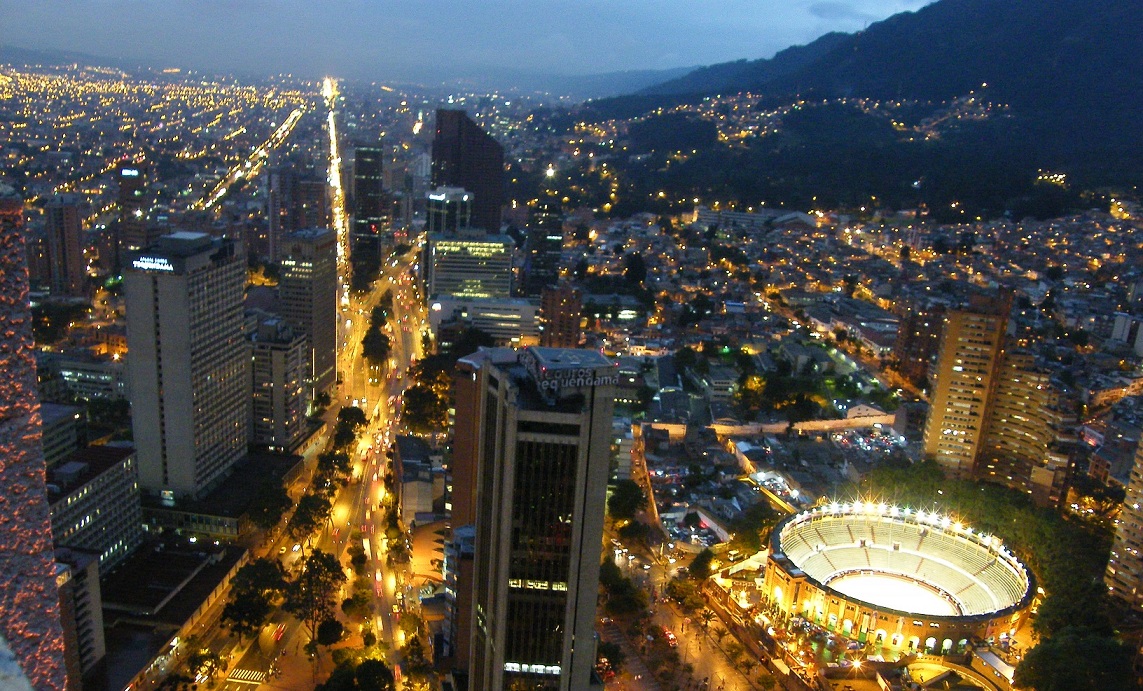
Bogotá accounts for over one fourth of Colombia’s tourism
Bogotá´s tourism GDP accounts for 2.5% of the city´s economy, a total of US$1.8bn, revealed a new report by the World Travel & Tourism Council (WTTC), Latin America City Travel & Tourism Impact. Bogotá`s tourism economy represents 29.1% of Colombia’s tourism activity.
Latin America City Travel & Tourism Impact is one of a series of reports by WTTC which looks at the contribution of Travel & Tourism to city economies and job creation. The study covers 65 cities, six of which are in Latin America.
International spend accounts for 41% of Bogotá’s tourism revenue, highlighting the importance of international visitors for the city. Most trips are for leisure rather than business purposes. The top international markets are United States (27%), Mexico (10%), Spain (5%), Brazil (5%) and Argentina (4%). Domestic demand is still responsible for 59% of tourism revenue, and spending from Colombian arrivals is forecast to double by 2026.
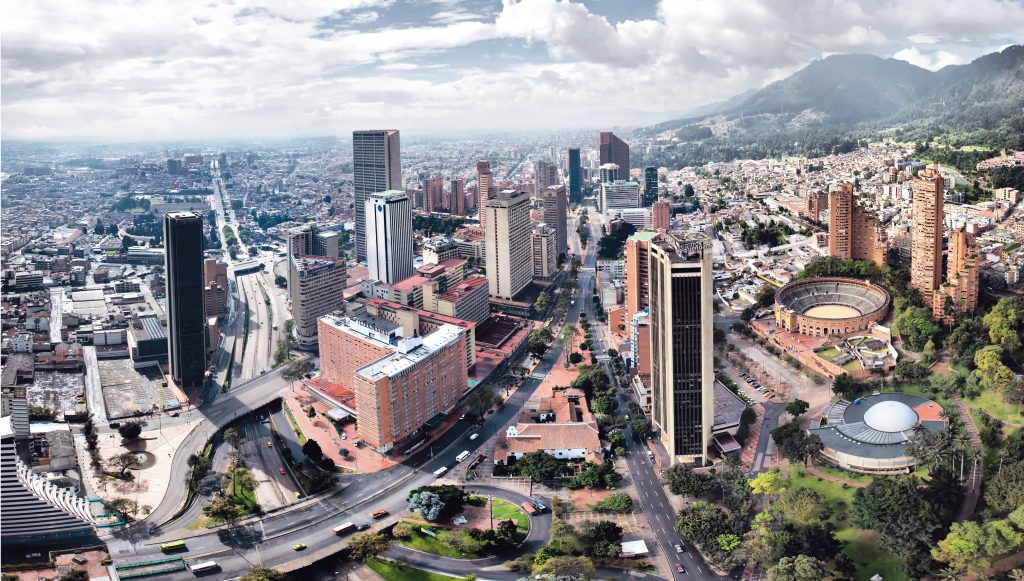
The total contribution of Colombia’s Travel & Tourism sector to GDP is COP51,05bn (US$16.7bn), or 5.8% of GDP. The total contribution of Travel & Tourism to employment, including jobs indirectly supported by the industry, was 6.1% of total employment (1.3 million jobs). Over the next ten years the sector is forecast to generate 219,500 jobs.
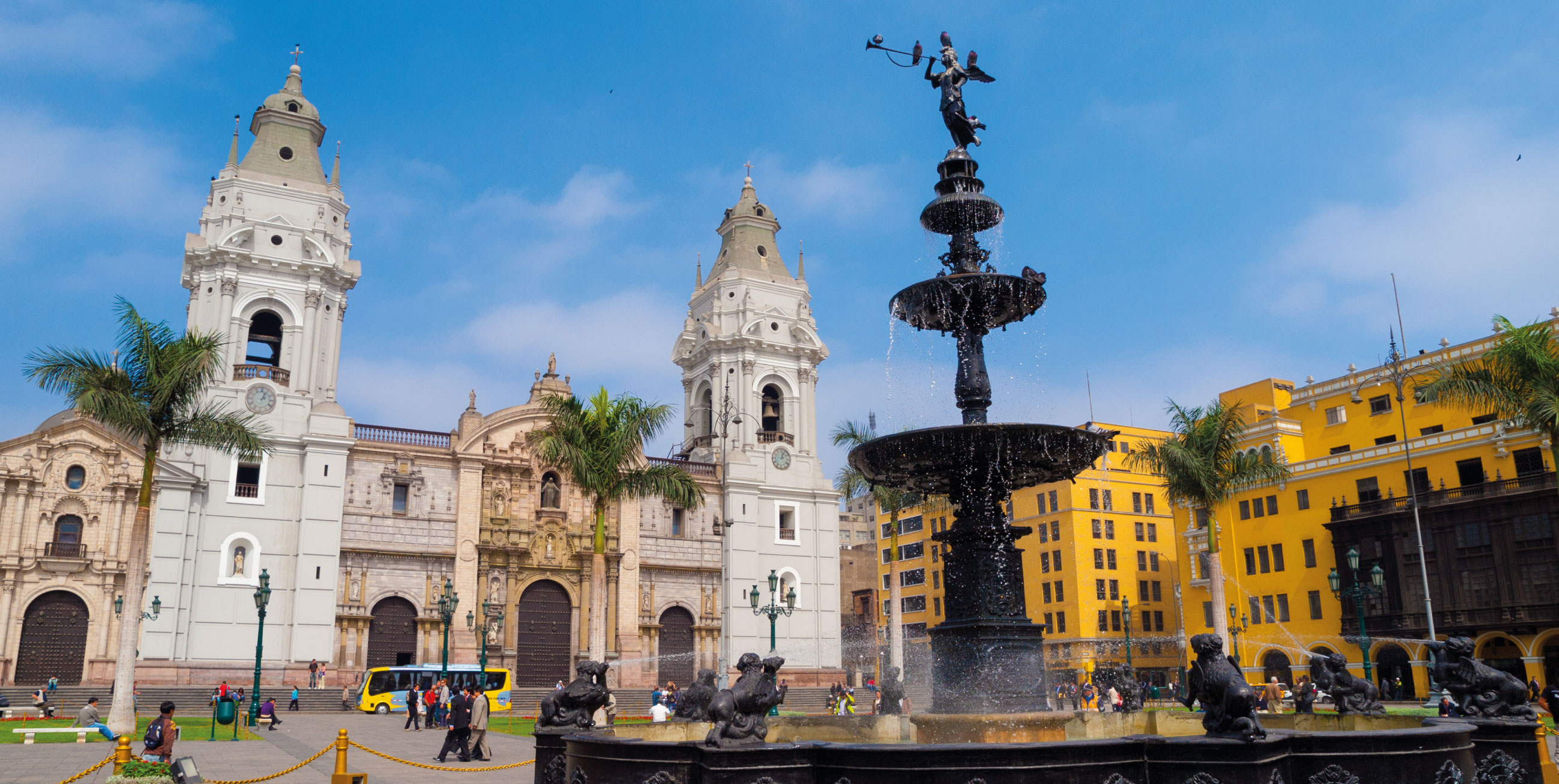
Lima accounts for over a half of Peru´s tourism
Lima accounts for 59% of Travel & Tourism GDP in Peru, as the city is a pivotal hub and gateway to the rest of the country, with 90% of visitors to Peru spending at least one night in the capital, revealed a new report by the World Travel & Tourism Council (WTTC), Latin America City Travel & Tourism Impact.
Latin America City Travel & Tourism Impact is one of a series of reports by WTTC which looks at the contribution of Travel & Tourism to city economies and job creation. The study covers 65 cities, six of which are in Latin America.
Travel & Tourism contributes 4.6% of Lima’s GDP, a total of US$4.5bn in 2016. International spend is responsible for 35.4% of tourism revenue, and the United States tops the source market list (25%), followed by Argentina (7%), Brazil (6%), Spain (5%) and Mexico (4%).
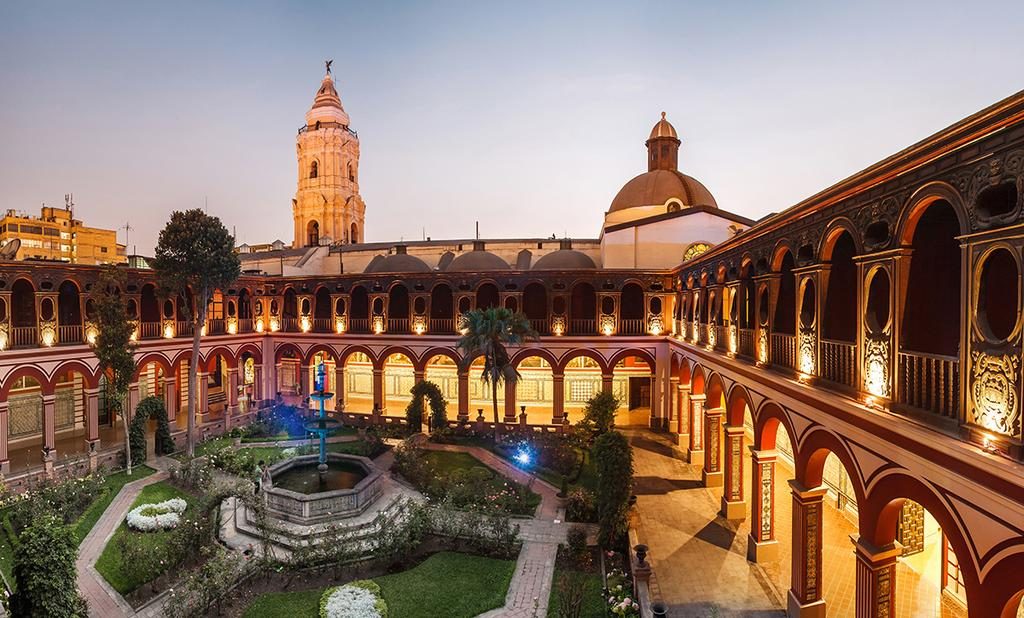
The total contribution of Peru´s Travel & Tourism to GDP was PEN66.2bn (US$19.6bn), 10.1% of GDP in 2016. The total contribution of Travel & Tourism to employment, including jobs indirectly supported by the industry, was 8.2% of total employment (1,3 million jobs). Over the next ten years, 552,000 new jobs are expected to be created through Travel & Tourism activity in Peru.
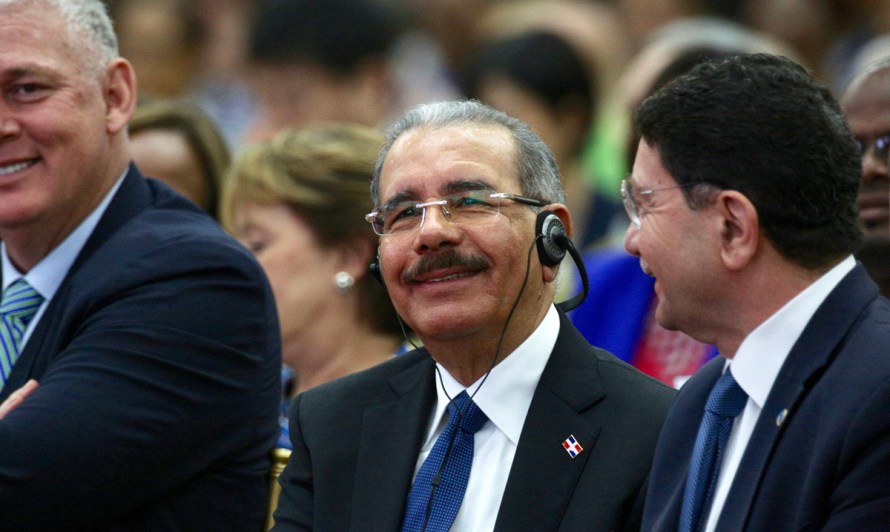
President of the Dominican Republic sealed Caribbean tourism cooperation MOU and speaks about it
Speech by His Excellency, President of the Dominican Republic, Lic. Danilo Medina, at the Conference on Partnerships for Sustainable Tourism.
Jamaica, 28 November 2017
Honorable Lord Andrew Holness,
Prime Minister of Jamaica;
Honorable Mr. Allen Chastanet,
Prime Minister of Saint Lucia;
Honorable Lord Taleb Rifai,
Secretary General of the World Tourism Organization;
Honorable Mrs. Cecile Fruman,
Director of Commerce and Global Competitiveness Practice, on behalf of the World Bank;
Honorable Lord Alexandre Meira Da Rosa,
Vice President for Latin America and the Caribbean of the Inter-American Development Bank;
Distinguished Members of the Cooperating Institutions for the organization of this conference;
Honorable Members of the different International Delegations present;
Distinguished Members of the Government of Jamaica;
Ladies and Gentlemen,
It is a pleasure to be here in this beautiful city of Montego Bay and it is an honor to visit what for the Dominicans is and will always be the sister nation of Jamaica.
I want to thank the Honorable Prime Minister, Andrew Holness, for his personal invitation and the organization of this Conference on Partnerships for Sustainable Tourism.
As you know, tourism is one of the most direct ways to weave links between human beings, fostering the exchange of ideas and experiences.
And it is also a way to create connections between countries that until recently were not known, but that may have a great future in common.
I see many of the leaders of this great global exchange here, I see the great promoters of the tourism sector, both public and private.
And that makes me happy, because tourism, as well as being a creator of experiences, is a great driver of development for the countries that host it.
The truth is that, in just six decades, tourism has gone from being a small luxury industry to becoming a global mass phenomenon.
According to the figures of the World Tourism Organization, in 1950 tourism moved 2 billion dollars on a global scale, in the year 2000 it reached 495 billion dollars and, following this curve of accelerating upward, in 2015 it had reached already a trillion and a half dollars. This represents 10% of the World Gross Domestic Product.
In 2016, more than 1.2 billion tourists traveled the world and, according to figures from the World Tourism Organization for the year 2030, it is projected that the figure of 1.8 billion people will be reached.
To give us an idea, this means that tourism ranked third in world exports in 2015, after fuels and chemical products, and ahead of automotive products and food.
This is especially important for less developed countries, where tourism accounts for around 7% of goods exports and 30% of services exports.
Therefore, the economic impact of this phenomenon is so great that, directly or indirectly, it is responsible for approximately one out of ten jobs in the world, generating opportunities for progress for nations of all latitudes.
If we analyze this tourism growth by regions, we find that last year Asia and the Pacific grew by 9%, followed by Africa, with an increase of 8%, and the Americas, which grew by 3%.
In Europe, the most visited region in the world and therefore the most consolidated market, growth was 2%, and the only region that lost visitors, 4%, was the Middle East due to the political instability of the region.
In short, tourism has been distinguished by a virtually uninterrupted growth over time, despite occasional crises, always demonstrating its strength and resilience as a source of income generation.
Of course, it is no less true that exponential growth of this nature is accompanied by other challenges and threats. That is why it is so important that we stop to reflect.
Ladies and Gentlemen,
This year 2017 that is about to end was declared by the United Nations as the International Year of Sustainable Tourism for Development.
A decision that we celebrate and that has contributed significantly to highlight the need to think in the long term and recognize that the future of this sector should not be left to improvisation.
Since the beginning of the International Year of Sustainable Tourism, dozens of decentralized events have taken place every month, in different parts of the world, but all aligned around a common purpose.
To achieve that this growing and full of opportunities industry is oriented more and more to the definition of sustainable tourism. That is, to a tourism that maintains a balance between social, economic and ecological interests; a tourism that integrates economic and recreational activities in order to seek the conservation of natural and cultural values.
The topics that have been discussed are many, diverse and interesting. From the future of resorts and gastronomic tourism, to the role of communication in sustainable tourism, wildlife and coastal conservation initiatives or the need to ensure accessible tourism for people with disabilities. This calendar has brought together tourism entrepreneurs from all over the world and of all sizes, from non-governmental organizations, academics, officials and technicians from multilateral institutions.
In addition to the meetings of the Regional Commissions and the General Assembly, activities on a larger scale were held.
For example, in Manila there was a World Conference on Sustainable Tourism Statistics, which is essential if we want to have objective data on which to move towards our goals.
In September, Montreal hosted the World Conference on Sustainable Tourism for Development and Peace and a Roundtable on Sustainable Urban Tourism was held in Madrid, something that undoubtedly interests the major European capitals, but also emerging countries that seek to diversify their offer.
In addition, before the Closing of the International Year of Sustainable Tourism we still have on the agenda the World Conference of the UNWTO and UNESCO on Tourism and Culture, in the city of Muscat of the Sultanate of Oman.
Participate, in one way or another in these activities, workshops and seminars has been and is a great opportunity for thousands of people linked to the world of tourism and also for the different actors involved in decision making.
There are many knowledge, experiences, studies, data and capabilities that have been put in our hands thanks to the celebration of this year’s International Sustainable Tourism.
A great opportunity has been opened for us to reflect together on the long term and to start planning now the concrete measures that will lead us to build the tourism sector that we want to leave to the next generations.
We need tourism that takes into account local decision making, generating jobs for communities and respecting their identity and interests.
We need tourism that encourages respect in all its forms, that does not become an extractive industry and whose benefits are distributed in a balanced way.
And I understand that this International Year of Sustainable Tourism is equipping us with the tools to mobilize from governments, the private sector and civil society to work together for these objectives.
Our mission now is that the end of this year is just the beginning.
The beginning of a much more intense and coordinated national, regional and world work agenda to advance towards the future of tourism.
In this sense we consider it positive that the 2030 Agenda and Sustainable Development Goals SDO of the United Nations, consider sustainable tourism as one of its goals.
I want to emphasize also that this goal of transforming tourism should not be seen as a drastic break with the existing model. I understand that in reality what must happen is a natural evolution.
The countries of the Caribbean region, for example, will not stop being visited in good part to enjoy the sun and the beach. That is one of our great attractions, after all.
However, we also know that to that experience we can add many others. We can offer adventure tourism, ecological tourism, historical and cultural tourism, culinary tourism, religious tourism and health tourism. In short, an endless list of options that go much further.
But in addition, the tools that we have now must allow us to evaluate and plan the future developments that we will implement in each place and its consequences in all areas.
We have to do this to ensure economic and environmental sustainability, and so that tourism revenues reach a greater number of communities.
We must meet the needs of current tourists and millions of people living on tourism, but we must also ensure the economic and social needs of the rest of the population, as well as the cultural and ecological integrity of our fragile ecosystems, which are ultimately the heritage that we will leave to future generations.
In my country, the Dominican Republic as in many other parts of the world, there are still many regions with exceptional natural and cultural attractions that have not yet been fully developed, such as the southwest and northwest of the republic.
But we know that in those places we must bet on a sustainable, low density tourism. An experience that maintains a balance between social, economic and ecological interests.
Because, in addition, more and more tourists are aware of the need to integrate their holiday experience with the conservation of the natural and cultural values of the area.
The commitment to tourism sustainability, in all its forms, will be beneficial from all points of view and, I have no doubt, it will also be a source of income and development for our peoples.
Boy friends and girl friends
Those present are joined by joint opportunities and, why not, also great global challenges.
Challenges in which tourism, paradoxically, can be both an aggravating factor if it is mishandled, and a solution if it is managed well.
The response to health problems, such as the outbreak of Zika or natural disasters, such as hurricanes or floods, should remind us of the need for permanent planning and coordination between our countries.
In the same way, we have the responsibility to work together in the search for regional solutions to common problems, such as waste management, the generation of clean energy or the conservation of our seas and oceans.
And, of course, we must take the necessary steps so that both our countries and our tourism sector are fully prepared to adapt to climate change.
That is why we are pleased that the tourism sector has committed to the goal of reducing its CO2 emissions by 5%.
In fact this next day 29 my country, the Dominican Republic will host a workshop on the role of tourism in the framework of the International Climate Initiative.
This is also why it is of the utmost interest that, especially in the most vulnerable countries, we have a single voice in forums such as the “One Planet” Summit to be held in Paris on climate change.
It is time for the world to know the difficulties we must overcome in the face of increasingly frequent natural disasters and to support us in mitigation and reconstruction.
Ladies and Gentlemen,
Before finishing this intervention I would like to focus attention on our Caribbean region.
Last year we received great news.
Tourism in the Caribbean region grew faster than the world average and as a result, for the first time, we exceeded the figure of 25 million visitors.
Everything indicates that 2017 will be the eighth consecutive year of continuous growth of tourism in the Caribbean, with a solid 4% in relation to the previous year and everything indicates that this trend will continue.
In the case of the Caribbean region, this is crucial, because we are currently the region that depends the most on tourism income in their economies.
To give you an example, for the Dominican Republic, tourism is producing more than 25% of the currencies generated by our economy.
We are, therefore, before a very great opportunity. Especially if we can position “The Caribbean” as a unified destination in the global market.
This does not mean, of course, that we Dominicans are going to stop promoting the Dominican Republic, or that Jamaicans stop promoting Jamaica as a destination.
It is simply a matter of recognizing that there is a larger market beyond. There is a visitor who wants to accumulate more than one experience in his trip, know the richness and diversity of our cultures and take advantage of his visit to this side of the world to travel to different places.
That opens us, as you know well, a large space for what in technical language is called multi-destination tourism.
Dominican Republic, Trinidad and Tobago, Barbados, Jamaica, Saint Lucia, Cuba, Puerto Rico and all the islands that make up this beautiful region have enormous potential if we are able to weave a network of offers that allows customers to explore all the attractions that it adds up to the climate, culture and experience offered by the Caribbean.
In that sense, today my country has signed with Jamaica a multi-destination tourism cooperation agreement, with the purpose of strengthening this joint offer. Of course, our goal is for this to be followed by many other agreements among the nations of the Caribbean, which allow us to develop our full potential.
From the governments there is much we can do to promote tourism in the region: open skies, migration facilitation, better and more efficient airports and tax incentives and, of course, joint promotion.
Equally, there is much that the private sector can begin to do: tour operators, travel agencies, airlines, shipping companies and other actors should see the great benefit they can obtain if they start already to design attractive multi-destination products.
Friends,
Our country is, we could say, an extroverted country. And it is not only for the joy of our people and our hospitality to receive foreigners, but also for our willingness to expand our horizons.
We Dominicans bet for openness to the world, but we bet above all, for collaboration and joint work to achieve better results.
We want to work with all of you to transform the tourism sector not only into a growth engine, but into a motor for sustainable growth.
Let’s put all our best values at stake so that tourism is not just more employment, but also formal and quality employment for the progress of our peoples.
Let’s not only be more currency and income, but revenue for all sectors and the entire territory, in a balanced manner.
All of us present here have the responsibility, not only to participate, but also to lead this transformation that tourism is experiencing.
Do not doubt it: your priorities are also the priorities of the Dominican Republic.
We will continue to bet on tourism that reflects the three values proposed by the United Nations: Travel, enjoy and respect.
Thank you very much!
